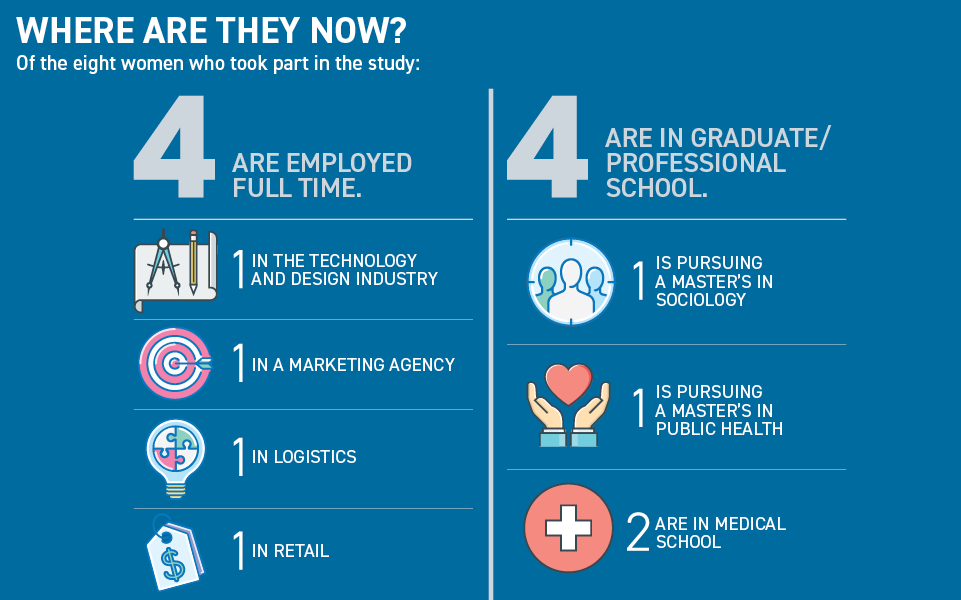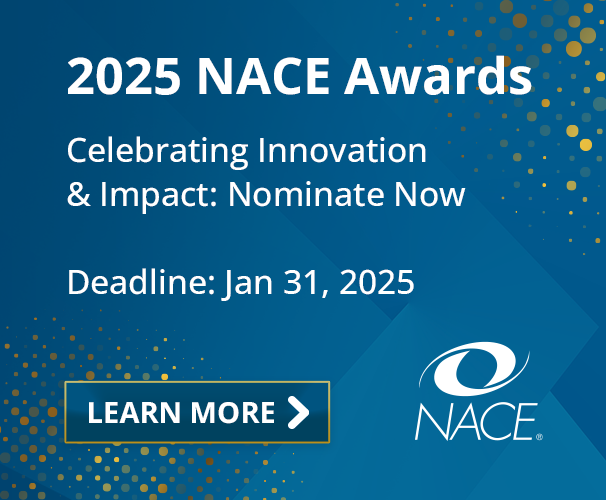NACE Journal / Spring 2023
As a leader of career centers on university campuses for more than 20 years, I have observed how access to networks, information, and resources have created a competitive advantage for some students over others when pursuing internships and full-time employment. In particular, I have witnessed the unique challenges faced by students of color in both public and private four-year institutions, including limited access to well-positioned industry contacts as well as limited family role models who have engaged in the college-going experience. Motivated by this knowledge, I conducted a study to explore the ways in which access to cultural and social capital might be a determinative factor in the attainment of career outcomes for students. French sociologist Pierre Bourdieu conceptualized cultural and social capital to describe access to privileged information, resources, and social networks.1
My research specifically focuses on Black women, who studies have shown are the most educated group in the United States and graduate from college at the highest rates, but who face unique employment barriers: They are more likely to work in low-paying occupations, face hostile work environments, and encounter everyday racial microaggressions in predominantly white spaces.2 Through this study, I sought to uncover the aspects of social and cultural capital that have contributed to the transition of Black undergraduate women to the workforce and their pursuit of advanced degrees. I also grounded the research in two theoretical frameworks that offer an asset-based perspective by acknowledging the rich forms of capital that Black women already possess: Tara Yosso’s community cultural wealth (CCW) framework and Ricardo Stanton-Salazar’s institutional agents social capital (IASC) framework.3 The CCW and IASC frameworks provided a lens through which to understand the study findings, which are discussed below.
Background
The study was conducted in the spring of 2022 at a minority-serving institution (MSI) in the Southeastern United States. (For purposes of this study, the institution is anonymized as Woodington University.) MSIs receive funding from the U.S. Department of Education to foster social and educational skill development for students to aid them in navigating racial and socioeconomic disparities.4 This funding is accompanied by an expectation from the federal government that MSIs will demonstrate progress toward achieving more equitable outcomes for their students. By conducting this study at the MSI, I endeavored to understand the influence of familial and community relationships as well as the role of institutional agents in the women’s acquisition of cultural and social capital and career outcomes. I conducted a multiple case study and selected eight Black women as my cases using purposeful random sampling from the 2020 first-destination data for the MSI, the most recent graduating class for which data were available when I designed my study in fall 2021. I randomly selected from those who were coded “Black” for race and “female” for gender. I chose case study as my methodology as I wanted to understand the lived experiences of each woman while also understanding the similarities and differences with how the Black alumnae fared with attaining career outcomes.
While the case study approach defined the subject of my study, I also embraced a qualitative research design, which enabled me to obtain a detailed understanding of the forms of capital, social and cultural, accessible by the women as well as their resulting career outcomes. In alignment with the qualitative approach, I conducted two rounds of in-depth interviews with each participant in which I used a predetermined set of questions to gather information about her experience before, during, and after college as well as the family influence and institutional influence during those times. The data were coded and analyzed to provide an answer to the research question, “What are Black alumnae perceptions of their experiences at Woodington University?” The findings provide a greater understanding of these perceptions, and several themes emerged related to 1) the role of navigational barriers, 2) the role of supportive and influential relationships, 3) the role of institutional relationships and campus experiences, and 4) the role of personal attributes to overcome adversity.
Findings: Black Alumnae’s Perceptions of Their Experiences at WU
The aim of the study was to determine if the Black undergraduate women perceived that they had access to the information, resources, and networks—also known as cultural and social capital—they needed to make a successful transition from campus to career. The findings illuminated barriers, relationships, experiences, and attributes that in some cases derailed their transitions and in other cases advanced their outcomes.
The role of navigational barriers
Study participants disclosed that they faced difficulties when navigating career pathways. Some described that they did not know the steps to take.
One of the women—a first-generation college student—described that she would have gotten much further if she had examples of what being in college was like. She expressed that she did not know the rules to navigate. Several of the women also specifically recounted their lack of knowledge of the resources available on campus, including the career center. Additionally, they found they did not have access to adequate graduate school preparation or in-depth academic advising related to the order of courses to take. As a result, they were unsure how to prepare for and pursue their career goals. These barriers caused delays in goal attainment and, in several cases, the women were unable to achieve their desired career objectives and pivoted to other pathways.
Some participants also felt they were inadequately prepared for their career pursuits. Networking was a challenge, as illuminated by one of the participants. While she acknowledged her introverted tendencies made it more difficult for her to try to make connections, she also recalled that her friends in other majors benefitted from close relationships with their faculty, which led to helpful networking connections. As a communications major, she felt she missed out on the opportunity to make meaningful contacts that would have made it easier to attain her career goals. The lack of access to a professional network was echoed by others as was uncertainty about the steps to take to be prepared for the job search.
Participants also felt they lacked the right experience to achieve their desired career outcomes as they did not have the same level of accomplishments as their peers or did not possess specialized qualifications that were desired by employers. In addition, there was a realization that degree completion only prepared them for entry-level roles, and they would need to start at a lower level than they had originally anticipated.

Of the eight women in the study, only three used the career center and noted resources that aided in their preparation. This can have significant implications as the NACE 2022 Student Survey results reflected that graduating seniors who did not use any of their career center’s services averaged only 1.0 job offer compared to 1.24 among those who used even just one service.5 One of the women relied heavily on her father, who had studied the same major and offered advice to her on the steps she needed to take; however, the remaining women did not have access to consistent mentoring as they took steps to pursue their career goals.
Several research studies have shown that undergraduate students often face both internal and external barriers when attempting to attain career goals. Yet, the Black women in my study were resolute and focused and did not face issues of internal motivation or inaction. Their barriers were exclusively external—misalignment with qualifications sought by employers, limited or no access to networking contacts, and conditions of the job market uniquely impacted by the worldwide pandemic.
The role of supportive and influential relationships
While navigating the institution and the steps to secure employment or graduate admissions was a challenge, participants recounted several supportive and influential relationships that played an instrumental role in their success in college and transitioning to careers.
Family members were critical resources for emotional support and advice. The women described their connectedness to their families during and after college. Moms, in particular, were cited as playing a critical support role. One of the participants fondly recalled the daily conversations with her mother, which were a source of encouragement. The women all came from less affluent families, and many had periods growing up when their households struggled financially. So, the provision of financial resources was not something families could offer, but for most of the women, their family members were strong advocates for aspirational career support and accountability. While most participants believed their parents did not have the knowledge or experience to help them in their career pursuits, they did receive motivational support.
A surprising finding was the role of peers in the pursuit of career aspirations. While the women in the study gave credit to their peers for emotional support, they also cited several ways that friends supported their career readiness and steps toward attaining career outcomes. One participant recounted how her friend would offer advice as well as share online videos with job-search tips. Another participant reflected on the moment she realized that her peers were already applying for jobs and how she had no idea her plan to wait until her final semester to submit applications would put her behind.
Peers also played a role in providing connections. One participant aspired to be a doctor and faced difficulty getting information about the medical school application process. Her friend made an introduction to her cousin who was a doctor and he reviewed all the steps she needed to pursue medical school. Peers played an instrumental role for the women in my study by providing encouragement and accountability as well as career contacts and resources.
Participants attribute the supportive relationships, both families and peers, as instrumental in their ability to persist in college and to attain their career goals. Yet, they also found sources of support within the institution.
The role of institutional relationships and campus experiences
In higher education literature, faculty are most frequently cited as the agents within the institution who play an important role for students. The women in the study similarly cited faculty as institutional agents who supported their college experience. Participants described the advocacy role that faculty played by providing skills development and academic project support, which enabled the women to develop marketable skills and strengthen their resumes. They also valued faculty efforts to write letters of recommendation, share job listings, and make connections to resources such as internships and scholarships. Overall, they described that they felt a sense of care from faculty. One participant appreciated the mentorship of a faculty member who helped her talk through options for graduate school. Similarly, another participant who was interested in grad school received support from multiple faculty who encouraged her to pursue her master’s degree. In fact, it was one of these professors who read her senior paper and initially encouraged her to pursue grad school and turn the paper into a thesis.
While faculty were advocates and provided resources that aided in career readiness and academic interests, they did not offer holistic support to the Black women in my study by helping them to navigate barriers and understand the culture within the institution.
Studies show that students of color often struggle in college with navigating processes and cultural norms, and they often do not know who to ask for assistance. In terms of the students in my study, faculty did not transcend their roles to become involved in multiple aspects of the students’ lives. The literature recounts numerous studies where faculty invested in getting to know their students and deeply impacting their college experience and preparation, yet this was not the case at Woodington University, where the support was helpful, but transactional.
Another observation was the lack of access the women had to faculty of color. Research has shown that engaging with faculty who have a shared ethnicity and cultural heritage is impactful for students of color. In my study, the women reflected they did not have this access, yet they described that their support from white faculty was not diminished because they lacked a shared cultural experience.
While faculty were heralded as the most prominent institutional agents, it was encouraging to also hear stories of staff agents who stepped in to provide support to some of the women in the study. One of the women recounted the encouragement she received from her campus supervisor to pursue a leadership role within the department. It not only helped her to grow her leadership skills, but it also led to a full-time job during a time when the worldwide pandemic made it more challenging to secure employment. Another participant also benefited from career growth and development through campus employment. As a resident assistant, she had access to a very supportive supervisor who invested in her development and encouraged her to pursue additional roles within Housing and Residence Life.
Beyond the influence of institutional agents, many of the women found ways to grow their skills through campus engagement. They recounted that involvement on campus provided connections, resources, and skills development. Club involvement often led to relationships with peers who supported their career aspirations while engagement in community service and leadership development programs cultivated skills and experiences they could reflect on their resumes and grad school applications. One of the women held a leadership role in her business fraternity and attributed the organization’s focus on professional development with helping her to develop a strong resume and learn how to interview. Another participant credited her role as a resident assistant as instrumental to her development of leadership skills, ability to embrace responsibility, and capacity to adapt quickly. For the four women who engaged on campus, they felt they benefited greatly from their involvement. The other four participants did not participate on campus and did not recognize it was something they should consider. When they neared graduation, they recognized that they lacked the networks, resources, and navigational knowledge to find employment in a timely manner, which created additional barriers. For those who chose to engage on campus, it was surprising to learn that they had to seek out their campus engagements. These opportunities were largely found through friends or from their own exploration. None of the participants recalled institutional departments or contacts that helped them get connected to campus engagement opportunities.
The role of personal attributes to overcome adversity
While relationships and campus experiences played a role in helping participants navigate from campus to career, the women also summoned their personal attributes to overcome adversities and to achieve success. Independent thinking, authenticity, and taking initiative were major contributors to their growth and attainment of career goals.
The ability of the women in this study to engage in independent thinking served as a motivator for the pursuit of career aspirations. Most selected their majors and career paths without any influence from family, peers, or institutional agents. While some reflected on being questioned about their major choices from family, they stayed the course and remained true to their own decisions. One of the women shared that she selected communication studies as her major exclusively because she felt she would have a range of career choices available to her. The Black women in my study set their own standards for the employment they wanted to secure and the timeline for attaining their goals. Their independent thinking, a core personal attribute, enabled them to persist toward goal attainment.
Additionally, the women displayed authenticity, which was reflected by their willingness to be self-reliant. As previously described, they received some support from faculty and peers with career resources and connections but had limited guidance on how to navigate the institution. As a result, their self-reliance became an important tool for decision making. Two of the women recalled exerting their independence to let their families know they would not be returning home and would find a job immediately so they could live on their own. Within the academic setting, one of the women noted that only the “best” students in the class regularly received accolades from faculty along with access to resources and connections. In the absence of faculty support, she had to encourage herself by recognizing that she had potential in the field despite a lack of external validation. She attributed this self-reliance to her ability to continually gain self-confidence, which allowed her to go after things that she wanted and deserved.
In addition to qualities of independent thinking and self-reliance, participants also took initiative, which aided in their personal advancement. One of the women reflected on her efforts to pursue employment. When she arrived at graduation and did not have a job, she decided to not take vacation or set aside any time to celebrate completion of her degree. Instead, she continued to work on her internship while engaging in job-search efforts every week until she landed a full-time position. Another participant took initiative to build relationships with faculty that later made it easier when she needed to request their support with recommendations for graduate school. When it came to finding an internship, one of the women did not hesitate to reach out to a local nonprofit to express her interest in working as an intern. She also brought a sample of a mock event plan, which impressed the owner who subsequently hired her. Even after starting the internship, she asked to shadow her manager and to take on new projects to ensure she was maximizing her exposure. The initiative taken by the women in the study aided in their personal advancement and played a direct role in their attainment of career outcomes as well as their ability to overcome obstacles. Leveraging their personal attributes was an essential part of their success in making the transition from campus to career.
Implications and Recommendations
These findings illuminate several implications for higher education institutions, for theoretical perspectives, and for policy and practice. The implications that follow are accompanied by recommendations to address the barriers the Black undergraduate women in this study faced and more effectively position underrepresented students to access career pathways.
Implications for higher education institutions
“I feel like I would have gotten much further if I had examples of what being in college was like, if I had family members who went through college, who had done the college experience.” –Alicia
The findings from this study show that Woodington University, as a minority-serving institution, did not offer resources that were focused on Black undergraduate women. As a result, the women often faced barriers as they navigated the university and the job-search process. The institution failed the Black women in this study by not providing information and resources to help them navigate the institution. Their success with attaining their career goals resulted from leveraging their own personal attributes, seeking engagement on campus, and reaching out to faculty and staff to request assistance.
The study found that the women had to seek out their campus engagements: There was no pathway in the MSI to ease their transition to campus, to help them navigate on campus, or to transition to post-college life. In addition, not all of the women knew they could or should engage with faculty outside of the classroom, so they did not have access to the mentoring that they needed. To address this challenge, I advocate for institutions of higher education to invest in institutional capacity building. By intentionally cultivating a network of faculty and staff who are cross-trained and promoted as visible resources to help students navigate, we can minimize the barriers students face within the institution and as they pursue career pathways. These institutional agents can offer mentoring and connections, and they can help students access information to support their career readiness. With this network of agents, it is also important that institutions are intentional in their efforts to engage faculty and staff of color. The ability for students to engage with people who have a shared heritage can help them feel more comfortable about engaging in these conversations.
I also recommend the adoption of institutional roadmaps. Fifty percent of the participants in this study did not know about the career center. According to Shawn VanDerziel, executive director of NACE, the Class of 2022 Student Survey Report indicates that “the majority of students don’t use the career center’s most impactful services—just 25.6% tapped the career center for help with internships, 20.8% took part in mock interviews, and 21.1% visited for networking preparation.”6 Often, campus units, like the career center, are siloed and rely on outreach efforts initiated by each area to promote their services. Institutions need to adopt broader roadmaps that help entering and continuing students understand the rich diversity of opportunities available to them, including multicultural centers, career centers, advising, and academic support resources. Promoting these resources early and illustrating how they should fit into the student academic experience can help to remove many of the navigational barriers that students often face. In particular, first-generation college students often lack access to contacts who have attended college, and it is critical for institutions to create ease of access to steps students should take to ensure both academic and career success.
Implications for theory
“I have definitely grown more confident by trying to put myself in positions where I would have more opportunities to be outside of my comfort zone.” –Bria
The findings reflect that Black women in the study possessed forms of capital as well as acquired new capital from others. When analyzing the data using the lens of Yosso’s community cultural wealth framework, it is apparent that the women leveraged aspirational capital, navigational capital, and social capital to support their career readiness and attainment of career outcomes.7 While participants possessed some forms of cultural wealth, they did not recognize them as assets for the job search.
Based on these implications, I recommend that when investing in institutional capacity building, universities also leverage the network of agents to aid in transmission of capital to support career pathways. While the NACE competencies offer clarity about the skills and knowledge that employers desire in new graduates, competency development must be supported in alignment with structures and processes that help students gain access to the networks, information, and resources they need to navigate to gainful employment. Institutional agents can play a vital role in these efforts to support skill development and navigational acumen. Students need to understand the importance of access to capital as well as the ways they can leverage these assets to achieve their career goals.
Implications for policy and practice
“I didn’t really know how to network, how to speak to someone and try to get myself into a job. I also felt like I didn’t have anything to talk about.” –Tasha
The women in my study did not know the steps to take to invest in their career readiness. Nor did every participant understand the value of campus involvement and creation of networks. The accountability of every institution of higher education is to foster equitable career paths for all students, yet my study makes visible the ways Black undergraduate women struggle to access the information and networks they need. Universities must make the career readiness and outcomes of students a strategic priority. Career preparation must be at the center of the university experience, and this is best accomplished through the integration of career readiness into the classroom.
Among the recommendations emerging from the NACE Career Services Strategic Positioning Task Force is the core principle of creating an academic-career development integration strategy with academic administration and faculty to ensure career is integrated across institutional outcomes and/or curriculum. This requires collaboration between faculty and career center professionals to embed career readiness content into the curriculum. As previously discussed, competency development is an essential component of career readiness, and career centers are bringing the NACE competencies to the forefront and educating students and faculty on employer needs.
Unfortunately, there is a critical gap that exists in effective competency development. Faculty who lack knowledge of the competencies and are not actively consulting within their field of expertise are ill-equipped to leverage the classroom to prepare students for the job market. Career centers can teach faculty about the competencies and support their efforts to seize moments in the classroom when they share tangible examples of how students are developing competencies, such as critical thinking, communication, and teamwork, through class projects, assignments, and classroom discussions. As noted in an op-ed Emily Levine and I published in Inside Higher Ed, “The central issue in realizing a long-term strategy for student career development is translation. That is, how students translate the skills they learn in the classroom into workplace success.”8
Based on my study findings, I also assert that career centers and higher education institutions must leverage data to better understand the student experience. Most career centers capture engagement data and separately collect first-destination survey feedback from graduates about their career outcomes. These assessment processes need to be integrated and must also capture demographic variables of race and gender. The only way an institution can hold itself accountable to fostering equitable career paths is by assessing the engagement and subsequent outcomes of students based on identity to determine how graduates fared. This approach offers checkpoints throughout the college experience so universities can evaluate inclusive engagement by class year and school as well as timing of job offers and acceptances and salary equity. These data can then be used to inform career readiness strategies and resource investments. Making the data available to deans and faculty can also reinforce a market-informed approach to academic preparation in the classroom.
The Importance of Relationships
This study confirmed the importance of family, peer, and institutional relationships on Black female students during and immediately after college. The findings align with the literature reflecting the depth of relationships that exist with family and peers. Career centers should consider the influential role that both peers and parents play and integrate strategies that can pull these support networks into the career preparation process. A 2017 study underscores the role of career coaches and recommends coaches develop strategies to incorporate parents as sources of social support for seniors during the transition from college to career.9
Parent newsletters and career readiness training along with peer educators and advisers can all play an important role in supporting student development. However, the relationships with institutional agents lacked depth. While some information and network connections were shared, the relationships did not play a role in helping the women to navigate barriers they faced when trying to launch their careers. The women in this study are representative of the students we all serve on our campuses—first generation, low income, underrepresented—and these findings underscore the critical role career centers and universities can play in supporting all students to achieve their career goals. Institutions of higher education must adopt policies and practices that support Black undergraduate women and all students of color with acquiring the assets, competencies, and networks they need to thrive in college and beyond. Integration of career readiness into the academic experience meets students where they are and ensures equity of access to information and resources. Cultivating networks of institutional agents minimizes the barriers students of color would otherwise face when trying to determine steps they should take to succeed in their academic and career pursuits. Additionally, the use of engagement and outcomes data can help institutions hold themselves accountable to equitable practices that ensure the success of all graduates.
Endnotes
1 Bourdieu, P. & Passeron, J. (1977) Reproduction in Education, Society and Culture. London: Sage.
2 Katz, N. (2020, June 20). Black Women Are the Most Educated Group in the U.S.ThoughtCo. Retrieved from www.thoughtco.com/black-women-most-educated-group-us-4048763 . Reeves, R.V. & Guyot, K. (2017, December 4). Black Women Are Earning More College Degrees, but That Alone Won’t Close Race Gaps. Retrieved from www.brookings.edu/blog/social-mobility-memos/2017/12/04/black-women-are-earning-more-college-degrees-but-that-alone-wont-close-race-gaps/ . Curtis, T.L. (2020, February 12). 5 Ways Job Searching Is Harder for Black Women. PayScale. Retrieved from www.payscale.com/career-news/2020/02/5-ways-job-searching-is-harder-for-black-women . Corbin, N. A., Smith, W. A., & Garcia, J. R. (2018). Trapped Between Justified Anger and Being the Strong Black Woman: Black College Women Coping With Racial Battle Fatigue at Historically and Predominantly White Institutions. International Journal of Qualitative Studies in Education, 31(7), 626–643. https://doi.org/10.1080/09518398.2018.1468045.
3 Yosso, T. J. (2005). Whose Culture Has Capital? A Critical Race Theory Discussion of Community Cultural Wealth. Race Ethnicity and Education, 8(1), 69–91. Stanton-Salazar, R. D. (1997). A Social Capital Framework for Understanding the Socialization of Racial Minority Children and Youth. Harvard Educational Review, 67, 1– 41. http://dx.doi.org/10.17763/haer.67.1.140676g74018u73k
4 U.S. Department of the Interior. (n.d.). Minority Serving Institutions Program. www.doi.gov/pmb/eeo/doi-minority-serving-institutions-program
5 VanDerziel, S. (2022). The Value of Career Services. NACE Journal, Vol. 83, No. 2, 5. Retrieved from www.naceweb.org/career-development/organizational-structure/the-value-of-career-services/.
6 Ibid.
7 Yosso defines aspirational capital as the ability to maintain hopes and dreams for the future in the face of barriers and navigational capital as the skills of maneuvering through social institutions. While I hoped to apply Stanton Salazar’s Institutional Agents Social Capital Framework (IASC), the participants in my study did not communicate that they had access to any of those forms of capital. IASC is transmitted through deep, meaningful connections with faculty and, unfortunately, that was not the experience of the women in my study.
8 Levine, E. J., and Hall, N. Want to Enhance Humanities Career Outcomes? Engage the Faculty. Inside Higher Ed. Retrieved from www.insidehighered.com/views/2017/10/02/career-services-and-faculty-must-work-together-help-humanities-students-essay.
9 Silver, B. R., & Rosa, J. (2017). Navigating Uncertainty and Responsibility: Understanding Inequality in the Senior-year Transition. Journal of Student Affairs Research and Practice, 54(3), 248–260.



